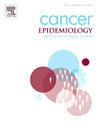Impact of the COVID-19 pandemic on lung cancer diagnoses and mortality: A nationwide study in France
IF 2.4
3区 医学
Q3 ONCOLOGY
引用次数: 0
Abstract
Background
During the first wave of the COVID-19 pandemic, a reduction in the number of newly diagnosed cases of lung cancer has been reported worldwide, often associated with a higher proportion of cases diagnosed at an advanced stage compared with previous years.
Methods
Using the French National Hospital Database, we investigated incident lung cancer cases and their mortality during pandemic years 2020 and 2021, compared to predictions based on pre-pandemic years 2013–2019. Mortality was assessed up to 24 months following incidence date. Expected numbers of incident cases and all-cause deaths during the pandemic were estimated using Poisson regression models and survival was analyzed using Cox regressions.
Results
The database included 397,092 incident lung cancer cases in total, 20 % of whom underwent thoracic surgery. During the first pandemic wave (March–June 2020), there were 12 % i.e., 1940 fewer incident lung cancer cases than the expected figure (16,325), while no significant difference was found thereafter. Survival at 6 and 24 months improved steadily from 2013 to 2019 and continued to improve during pandemic years 2020–2021. However, during the first wave, a slight excess mortality was observed compared with predictions based on pre-pandemic trends.
Conclusions
The lower incidence observed during the first wave with no catch-up in the following periods could be explained by deaths among yet undiagnosed patients, either from COVID-19 or as a result of barriers to accessing healthcare. The excess mortality observed for both operated and non-operated patients may be attributable to delayed diagnosis, as well as to COVID-19-related deaths.
COVID-19 大流行对肺癌诊断和死亡率的影响:法国全国性研究。
背景:据报道,在 COVID-19 大流行的第一波期间,全球新诊断的肺癌病例数量有所减少,与前几年相比,这往往与晚期诊断病例比例较高有关:我们利用法国国家医院数据库,对 2020 年和 2021 年大流行期间的肺癌病例及其死亡率进行了调查,并与基于 2013-2019 年大流行前的预测进行了比较。死亡率在发病后 24 个月内进行评估。使用泊松回归模型估算了大流行期间的预期病例数和全因死亡数,并使用 Cox 回归分析了存活率:数据库共收录了 397,092 例肺癌病例,其中 20% 接受了胸外科手术。在第一波大流行期间(2020 年 3 月至 6 月),肺癌病例比预期数字(16,325 例)少了 12%,即 1940 例,此后则没有发现显著差异。从 2013 年到 2019 年,6 个月和 24 个月的存活率稳步提高,并在 2020-2021 年大流行期间继续提高。然而,在第一波疫情中,与根据疫情前趋势做出的预测相比,死亡率略有上升:结论:在第一波疫情中观察到的发病率较低,而在随后的疫情中没有追赶现象,这可能是由于 COVID-19 或由于获得医疗服务的障碍导致尚未确诊的患者死亡。在手术和非手术患者中观察到的超高死亡率可能归因于诊断延迟以及与 COVID-19 相关的死亡。
本文章由计算机程序翻译,如有差异,请以英文原文为准。
求助全文
约1分钟内获得全文
求助全文
来源期刊

Cancer Epidemiology
医学-肿瘤学
CiteScore
4.50
自引率
3.80%
发文量
200
审稿时长
39 days
期刊介绍:
Cancer Epidemiology is dedicated to increasing understanding about cancer causes, prevention and control. The scope of the journal embraces all aspects of cancer epidemiology including:
• Descriptive epidemiology
• Studies of risk factors for disease initiation, development and prognosis
• Screening and early detection
• Prevention and control
• Methodological issues
The journal publishes original research articles (full length and short reports), systematic reviews and meta-analyses, editorials, commentaries and letters to the editor commenting on previously published research.
 求助内容:
求助内容: 应助结果提醒方式:
应助结果提醒方式:


